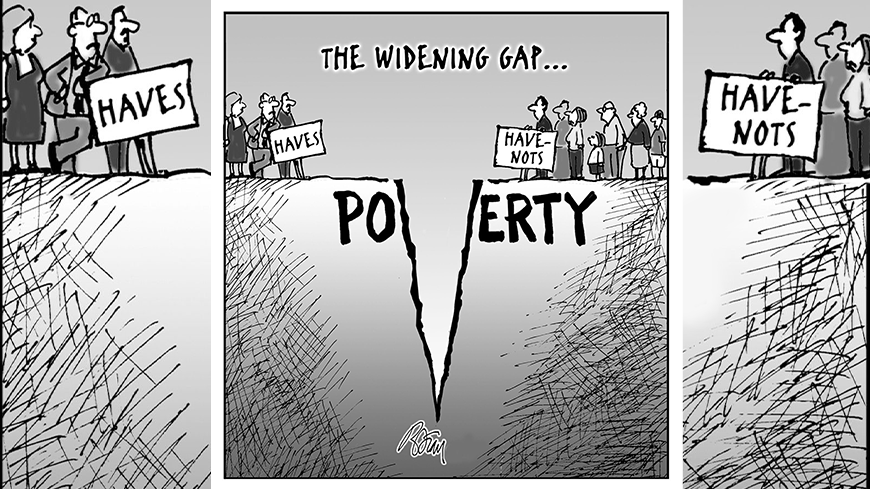Social rights
Social rights are fundamental to dignity and empowerment and include access to essentials such as food, health, education, housing, social protection and labour rights. The Commissioner supports states’ efforts to dedicate their available resources to progressively realise social rights for all, while ensuring that they can be exercised without discrimination.
Eradicate poverty through human rights-based fiscal policies

“With extreme poverty on the rise, I call on all member states to address poverty systematically and comprehensively, including by pursuing fiscal policies that are firmly based on human rights”, said today the Council of Europe Commissioner for Human Rights, Dunja Mijatović, on the occasion of this year’s International Day for the Eradication of Poverty.
‘No poverty’ features as the first of the 17 UN Sustainable Development Goals. Yet, despite this world-wide commitment and the encouraging advances made over decades, there is no room for complacency. Since 2021, extreme poverty has been on the rise again world-wide. full article
Education
Health
Employment
Living conditions
All children have the right to free and compulsory primary education, regardless of their abilities, background, and social status.
Education is one of the most powerful tools for lifting socially excluded children and adults out of poverty and into society. It is known not only to enhance income, job security and living conditions but also to offer lifelong positive effects on life satisfaction and health. The Commissioner has called on member states to end school segregation in all its forms and build genuinely inclusive education systems for all children, without discrimination. School closures in the context of COVID-19 have widened the educational divide and significantly impacted children’s life chances and their physical and mental health, particularly for children from disadvantaged backgrounds.

The right to health, while often overlooked or taken for granted, is an indispensable and fundamental human right.
Without it, there is no life in dignity and the ability to exercise other rights, to vote or enjoy civil and political freedoms, to work, learn and create, is significantly restricted. In the wake of the economic crisis, austerity measures were imposed on health care systems in many member states, with disastrous effects. As became very clear during the pandemic, the right to health cannot be protected effectively at an individual level only. It requires effective and inclusive systems that are accessible to everyone and that pay due attention to the essential social determinants of health: education, employment, social protection and living conditions.
The Commissioner has paid particular attention to mental health services and the recourse to coercion and institutionalisation as sources of continuous human rights violations across Europe. Women’s sexual and reproductive health and rights constitute intrinsic elements of the human rights framework which, despite important progress overall, remain curtailed and affected by multiple layers of discrimination, violence, and coercion.

The right to work and to just, safe, and healthy working conditions and fair remuneration are central protections enshrined in the European Social Charter.
Because of the important correlations of employment with income security, health, education and standard of living, the achievement and maintenance of as high and stable a level of employment as possible is one of the primary responsibilities of States Parties.
New forms of poverty have been emerging in Europe as employment does not always offer protection and the 'working poor' are often in precarious and low-paid jobs. Women, children, migrants, and persons with disabilities are at significantly higher risks of unemployment and poverty in Europe. The Commissioner has called on member states to enhance their efforts to protect all persons from forced labour and human trafficking for the purposes of labour exploitation.

Everyone has the right to a standard of living that is adequate to one’s health and well-being, including food, water, and affordable housing.
Homelessness is on the rise in Europe and increasingly affects families and young people. In many cities, housing has become unaffordable even for the middle class while social housing remains underfinanced and often outsourced. Adequate living conditions also imply access to green spaces, safe neighbourhoods, water and air quality, and being surrounded by a clean and sustainable environment. The Commissioner supports the growing recognition of the right to a healthy environment as a precondition for the safe exercise of human rights.



